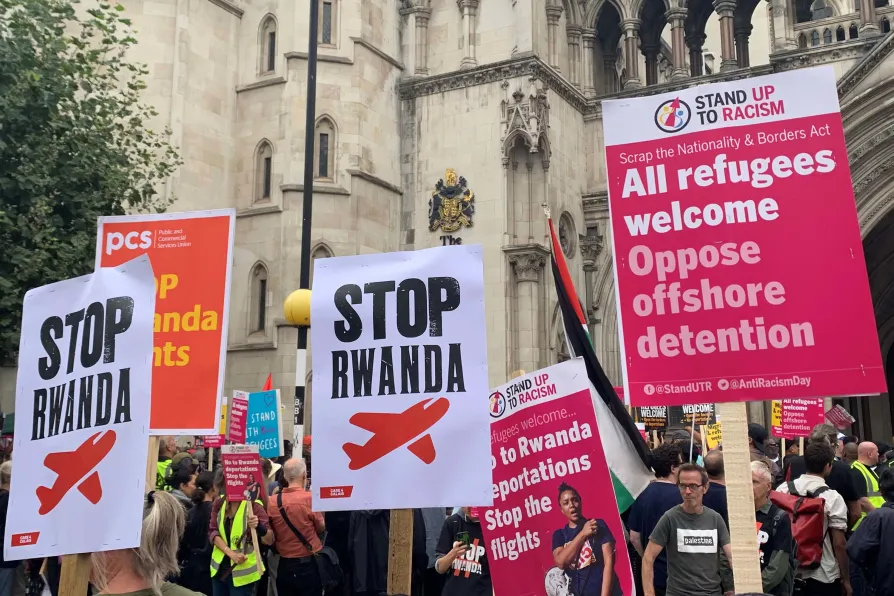Deporting asylum-seekers to Rwanda within three weeks of arrival 'upholds' their rights, Home Office says

 Demonstrators outside the Royal Courts of Justice, central London, protesting against the Government's plan to send some asylum seekers to Rwanda, while a High Court hearing over the policy is ongoing. Picture date: Monday September 5, 2022.
Demonstrators outside the Royal Courts of Justice, central London, protesting against the Government's plan to send some asylum seekers to Rwanda, while a High Court hearing over the policy is ongoing. Picture date: Monday September 5, 2022.
THE Home Office policy of removing asylum-seekers to Rwanda within three weeks of arrival “upholds” their rights, the government has insisted in the High Court.
Opponents of the deal argued on Thursday that the government’s timescales are unfair and unlawful.
The court heard earlier how asylum-seekers who are given a “notice of intent” to remove them to the east African country are then given just seven days to make the case against their removal.
Similar stories

ANSELM ELDERGILL examines the government’s proposals to further limit the right of citizens to trial by jury

ANSELM ELDERGILL asks whether artificial intelligence may decide legal cases in the future, in place of human judges, and how AI could reshape the legal landscape












